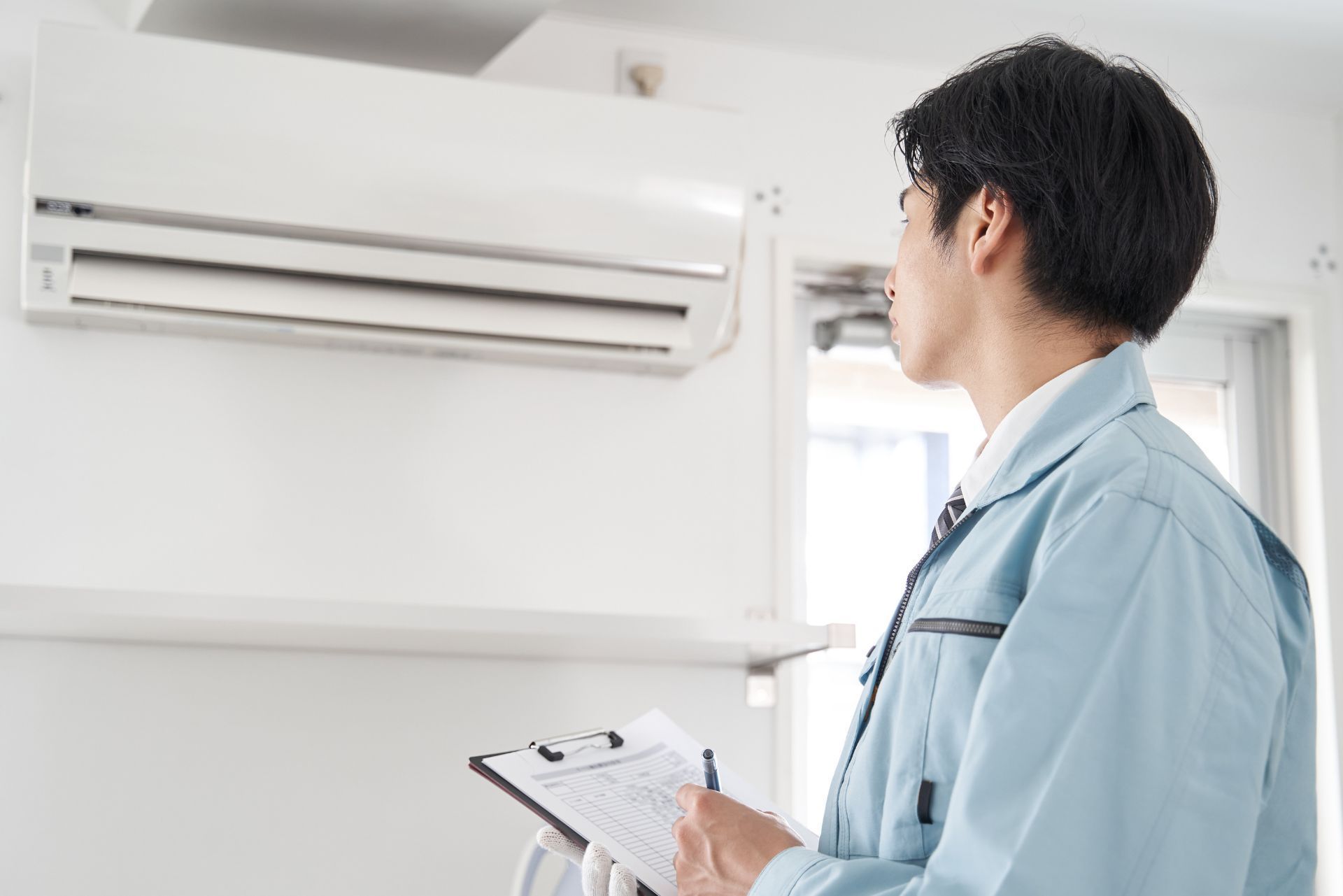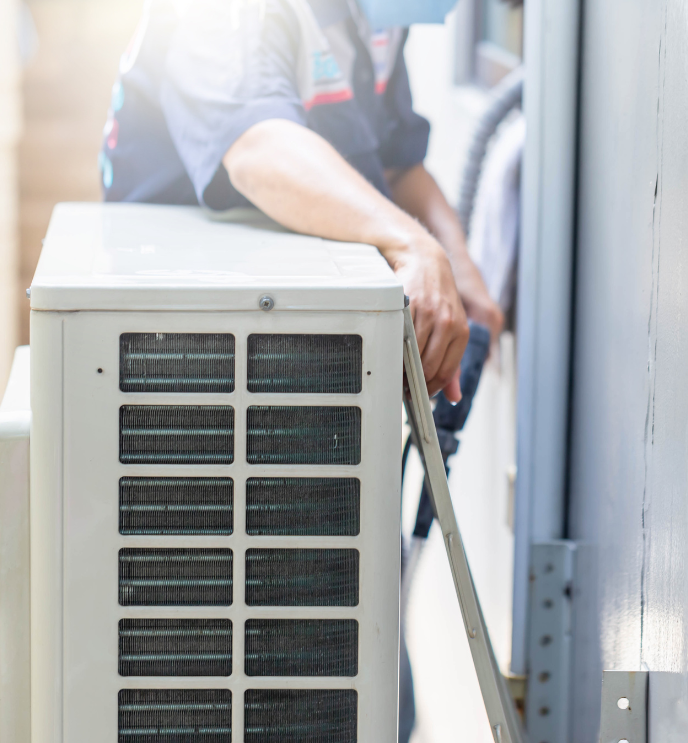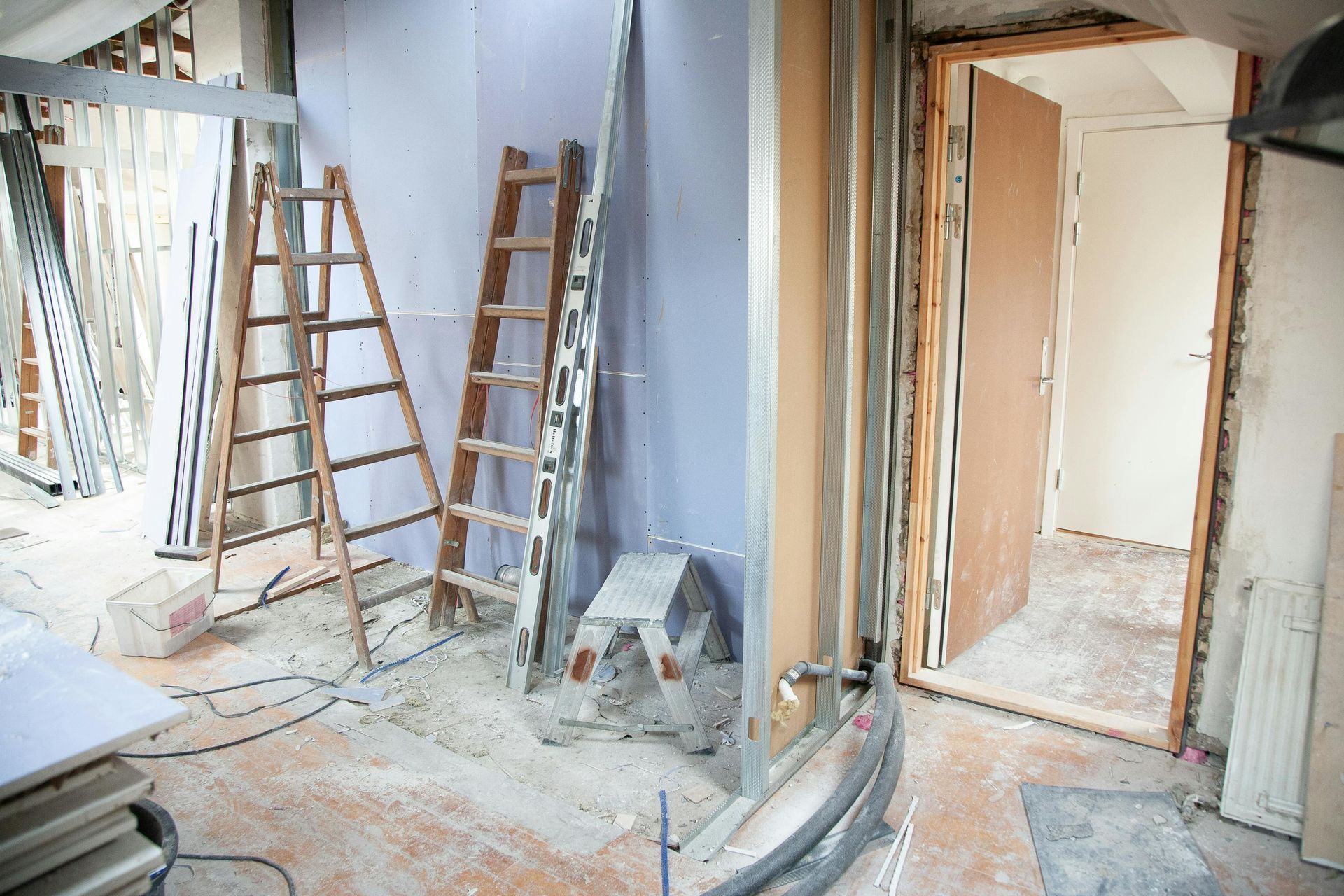Types of Contractors We Serve
Jonathan Behr
Owner of Contractor Insurance Pros by Behr Insurance Services
Index
Contact Us
Phone
Location
Simi Valley, CA 93065
The Woodlands, TX 77382
Katy, TX 77494
In the healthcare industry, maintaining a safe and comfortable environment is paramount. Hospitals rely heavily on their HVAC (Heating, Ventilation, and Air Conditioning) systems to ensure that patients, staff, and visitors are comfortable and safe. For contractors specializing in HVAC services for hospitals, having the right insurance coverage is not just a legal requirement; it is also a crucial aspect of risk management. This article delves into the specifics of hospital HVAC contractor insurance, its importance, types of coverage, and best practices for contractors.
The Importance of Insurance for HVAC Contractors
Insurance serves as a safety net for HVAC contractors, particularly those working in sensitive environments like hospitals. The nature of the work involves significant risks, including potential accidents, equipment failures, and liability issues. Without adequate insurance coverage, contractors may face severe financial consequences that could jeopardize their business. This is especially true in environments where the stakes are high, such as in medical facilities where the failure of HVAC systems can impact patient care and safety. The peace of mind that comes with comprehensive insurance allows contractors to focus on their work without the constant worry of potential liabilities hanging over their heads.
Risk Management
Risk management is a critical component of any business, especially in the healthcare sector. HVAC contractors must navigate various hazards, including electrical issues, falls, and exposure to hazardous materials. Insurance helps mitigate these risks by providing financial protection in case of accidents or unforeseen events. Additionally, many insurance policies offer risk management resources, such as safety training and guidelines, which can further enhance a contractor's ability to prevent accidents before they occur. By investing in both insurance and proactive risk management strategies, HVAC contractors can cultivate a safer work environment, ultimately leading to increased efficiency and client satisfaction.
Legal Compliance
Many states and local jurisdictions require HVAC contractors to carry specific types of insurance. Compliance with these regulations not only protects the contractor but also assures clients that they are working with a professional who prioritizes safety and responsibility. Failing to have the required insurance can lead to fines and even the loss of the contractor's license. Moreover, maintaining proper insurance coverage can enhance a contractor's reputation in the industry, as clients often seek out those who demonstrate a commitment to legal and ethical standards. This can result in more business opportunities, as well as the ability to bid on larger projects that require proof of insurance as part of the contract terms.

Types of Insurance Coverage for HVAC Contractors
Understanding the different types of insurance available is essential for HVAC contractors working in hospitals. Each type of coverage addresses specific risks associated with the job, ensuring comprehensive protection.
General Liability Insurance
General liability insurance is a fundamental coverage that protects contractors from claims related to bodily injury, property damage, and personal injury. For HVAC contractors, this can include incidents such as a client slipping and falling on a wet floor or damage caused to hospital property during installation or repair work.
This insurance not only covers legal fees but also any settlements or judgments that may arise from such claims. Given the high stakes involved in hospital environments, having general liability insurance is crucial for any HVAC contractor. Additionally, hospitals often have strict protocols and regulations regarding safety and compliance, making it even more important for contractors to have this coverage. In the unfortunate event of an incident, having general liability insurance can help maintain the contractor's reputation and financial stability, allowing them to focus on providing quality service without the looming threat of financial ruin from potential lawsuits.
Professional Liability Insurance
Professional liability insurance, also known as errors and omissions insurance, covers claims arising from negligence, mistakes, or inadequate work. In the context of HVAC services in hospitals, this could involve a failure to install a system correctly, resulting in system malfunctions that could affect patient care.
This type of insurance is particularly important for contractors who provide design or consulting services, as it protects against claims that may arise from professional advice or services that did not meet industry standards. Moreover, hospitals often operate under stringent regulations and guidelines, and any failure to adhere to these standards can lead to significant repercussions. Professional liability insurance not only safeguards the contractor's financial interests but also reinforces their commitment to quality and accountability in their work. In an industry where precision is paramount, having this coverage can enhance a contractor's credibility and trustworthiness among hospital administrators and staff.
Workers' Compensation Insurance
Workers' compensation insurance is mandatory in most states and provides coverage for employees who are injured on the job. For HVAC contractors, this is vital due to the physically demanding nature of the work, which often involves lifting heavy equipment and working in confined spaces.
In the event of an injury, workers' compensation insurance covers medical expenses and lost wages, ensuring that employees receive the care they need while protecting the contractor from potential lawsuits related to workplace injuries. Furthermore, this insurance fosters a safer work environment by encouraging contractors to implement safety protocols and training programs. By prioritizing employee safety, HVAC contractors not only comply with legal requirements but also contribute to a more positive workplace culture. In high-pressure environments like hospitals, where every moment counts, ensuring that workers are healthy and able to perform their duties effectively is essential for maintaining operational efficiency and patient safety.
While general liability, professional liability, and workers' compensation insurance are the core types of coverage, HVAC contractors may also consider additional options to enhance their insurance portfolio.
Commercial Auto Insurance
For HVAC contractors who use vehicles to transport equipment and personnel, commercial auto insurance is essential. This coverage protects against damages resulting from accidents involving company vehicles, including liability for injuries or property damage caused by the contractor's drivers.
In hospital settings, where timely service is critical, having reliable transportation is crucial. Commercial auto insurance ensures that contractors can continue their operations smoothly in the event of an accident. Moreover, this insurance can also cover the costs associated with vehicle repairs and replacements, ensuring that contractors can maintain their fleet without significant financial strain. Additionally, some policies may offer coverage for tools and equipment stored within the vehicles, providing an extra layer of protection for valuable assets during transit.
Equipment and Tools Insurance
HVAC contractors rely on specialized tools and equipment to perform their jobs effectively. Equipment and tools insurance provides coverage for loss or damage to these essential items, whether due to theft, vandalism, or accidental damage.
This coverage is particularly important for contractors who work in hospitals, as the cost of specialized HVAC equipment can be significant. Protecting this investment helps ensure that contractors can quickly resume work without incurring substantial out-of-pocket expenses. Furthermore, having this insurance can also enhance a contractor's reputation, as clients may feel more secure knowing that their service provider is financially protected against unforeseen incidents that could delay critical projects. Regularly updating the inventory of insured equipment can help ensure that all tools are adequately covered, reflecting any new acquisitions or advancements in technology.
Business Interruption Insurance
Business interruption insurance offers financial protection in the event that a contractor's operations are halted due to a covered peril, such as a fire or natural disaster. This coverage can help replace lost income and cover ongoing expenses, such as payroll and rent, while the business is unable to operate.
For HVAC contractors working in hospitals, where timely service is critical, business interruption insurance can be a lifesaver, allowing them to recover from unexpected events without facing severe financial strain. Additionally, this type of insurance can provide peace of mind, enabling contractors to focus on their core business activities rather than worrying about the financial implications of potential disruptions. It is also advisable for contractors to assess their coverage limits regularly and adjust them based on the scale of their operations, ensuring that they have adequate protection in place to cover potential losses during extended downtimes.
Choosing the Right Insurance Provider
Selecting the right insurance provider is a critical decision for HVAC contractors. The right insurer can make a significant difference in the level of coverage and support available when needed most.
Researching Insurers
When looking for an insurance provider, contractors should conduct thorough research. This includes checking the insurer's reputation, financial stability, and customer service record. Reading reviews and testimonials from other contractors can provide valuable insights into the insurer's reliability and responsiveness.
Additionally, it is essential to ensure that the insurer has experience in providing coverage for HVAC contractors, particularly those working in the healthcare sector. Specialized knowledge can lead to better-tailored policies that address specific risks associated with hospital work. Insurers familiar with the healthcare environment understand the unique challenges, such as compliance with stringent regulations and the need for rapid response times in emergency situations.
Understanding Policy Terms
Before committing to an insurance policy, contractors should carefully review the terms and conditions. Understanding what is covered, the limits of coverage, and any exclusions is crucial to avoid surprises when filing a claim.
Contractors should also inquire about the claims process and the level of support the insurer provides during this time. A straightforward and efficient claims process can significantly impact the contractor's ability to recover from an incident. It’s also wise to ask about the insurer’s track record for claims resolution, as this can indicate how well they support their clients during stressful times. Furthermore, understanding how long it typically takes for claims to be processed can help contractors plan for potential disruptions in their business operations.
Consulting with an Insurance Agent
Consulting with an insurance agent who specializes in contractor insurance can provide valuable guidance. An experienced agent can help contractors navigate the complexities of insurance policies and recommend coverage options that best fit their unique needs.
Moreover, an agent can assist in comparing quotes from different insurers, ensuring that contractors receive competitive rates while maintaining adequate coverage. This personalized approach can lead to better-informed decisions and ultimately better protection for the contractor's business. Agents can also provide insights into emerging risks in the HVAC industry, such as new technologies or regulatory changes, helping contractors stay ahead of potential liabilities. Additionally, they can assist in periodic reviews of the policy to ensure that the coverage remains relevant as the contractor's business evolves and grows, adapting to new challenges and opportunities in the market.

Best Practices for HVAC Contractors
In addition to securing the right insurance coverage, HVAC contractors can adopt best practices to minimize risks and enhance their overall safety and efficiency.
Regular Training and Safety Protocols
Implementing regular training sessions for employees on safety protocols is crucial in the HVAC industry. Training should cover proper lifting techniques, the safe use of tools and equipment, and emergency response procedures. By prioritizing safety, contractors can reduce the likelihood of accidents and injuries on the job site.
Establishing a culture of safety not only protects employees but also enhances the contractor's reputation among clients, particularly in sensitive environments like hospitals where safety is paramount. Furthermore, incorporating hands-on training simulations can provide employees with practical experience in dealing with hazardous situations, allowing them to react appropriately when faced with real-life challenges. Regular safety drills can also help reinforce these protocols, ensuring that all team members are prepared to respond effectively in emergencies.
Maintaining Equipment
Regular maintenance of tools and equipment is essential for HVAC contractors. Well-maintained equipment operates more efficiently and reduces the risk of breakdowns or accidents. Contractors should establish a routine maintenance schedule and ensure that all tools are in good working condition before heading to a job site.
Investing in high-quality tools and equipment may have a higher upfront cost but can lead to long-term savings by reducing the frequency of repairs and replacements. Additionally, keeping a detailed inventory of equipment and its maintenance history can help contractors identify patterns of wear and tear, allowing for proactive replacements before a tool fails. This not only minimizes downtime but also ensures that the team is always equipped with the best tools for the job, ultimately leading to higher quality work and increased client satisfaction.
Effective Communication with Clients
Clear and effective communication with clients is vital for HVAC contractors, especially in hospital settings. Contractors should ensure that clients are informed about the scope of work, timelines, and any potential disruptions to hospital operations.
Maintaining transparency fosters trust and helps clients feel more comfortable with the contractor's work. Additionally, open lines of communication can lead to quicker resolutions in case of any issues that may arise during the project. Utilizing project management software can enhance this communication, allowing contractors to share updates, schedules, and changes in real-time. This not only keeps clients in the loop but also helps to document the project's progress, which can be invaluable for future reference. Regular check-ins and feedback sessions can further strengthen the relationship between contractors and clients, ensuring that expectations are met and any concerns are addressed promptly.
Conclusion
Hospital HVAC contractor insurance is an essential aspect of running a successful business in the healthcare sector. The unique challenges and risks associated with working in hospitals necessitate comprehensive insurance coverage to protect both the contractor and the facility. By understanding the various types of insurance available and implementing best practices, HVAC contractors can ensure they are well-prepared to navigate the complexities of their work while providing essential services to the healthcare community.
Ultimately, investing in the right insurance coverage not only safeguards the contractor's business but also contributes to the overall safety and well-being of patients and staff in hospitals. As the healthcare landscape continues to evolve, HVAC contractors must remain vigilant in their risk management strategies and prioritize safety and compliance in all aspects of their work.
Areas we serve









